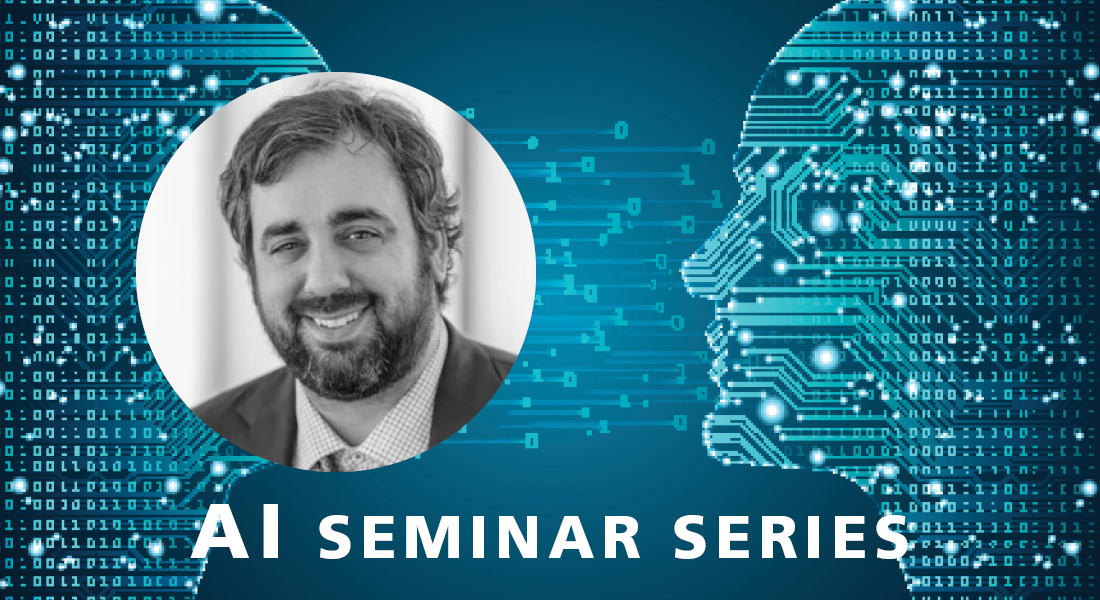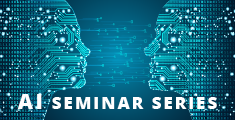AI Seminar: Feedback in Quantum Algorithms: Bridging Quantum Information and Machine Learning

Join us for a talk by Jacob Biamonte, Distinguished Faculty Scholar in Quantum Sciences at the NASA Ames Quantum Artificial Intelligence Laboratory. Everybody is welcome to attend.
Title
Feedback in Quantum Algorithms: Bridging Quantum Information and Machine Learning
Abstract
Global efforts to utilize quantum effects for advanced information processing have seen remarkable experimental advancements, propelled by both public and private sectors. Yet, a tangible gap persists between theoretical quantum algorithms and the current capabilities of quantum processors. This discrepancy has steered research towards using iterative quantum-to-classical feedback to maneuver quantum software beyond hardware limitations. In this presentation, I will highlight our findings on certain limitations of this approach. We identified how specific problem instance structures can lead to underparameterization in quantum approximate optimization, showing that initial optimism regarding the approach were not statistically indicative of common problem instances. Another revelation was the occurrence of avalanche effects in quantum circuit training, presenting the first counterpoints to the piecewise trainability conjecture. On a positive note, we discovered conditions ensuring problem instance independence of optimized circuit parameters—termed "parameter concentrations"—and establishing that the variational model could serve as a universal model for quantum computation. The trajectory of quantum hardware's evolution to realize practical applications remains uncertain. However, it is evident that the realm of quantum application theory is undergoing a transformative shift with the advent of feedback.
Bio
Dr. Biamonte currently serves as a Distinguished Faculty Scholar in Quantum Sciences at the NASA Ames Quantum Artificial Intelligence Laboratory. He also holds a visiting appointment at the Simons Foundation for the Theory of Computing at the University of California, Berkeley.
He earned a BSc from Portland State University and a PhD from the University of Oxford. Additionally, he holds a higher Doctorate from the Moscow Institute of Physics and Technology.
Dr. Biamonte's research focuses on a data-driven approach to understand emergent and collective behaviors in quantum optimization and machine learning. Over the years, he has made substantial contributions to the field. After his undergraduate work, he joined D-Wave Systems Inc. in Vancouver, Canada, as a Quantum Applications Scientist and later took on a fellowship with the Aspuru-Guzik Group at Harvard University. He was fortunate to be mentored by John Carlos Baez and supervised by Arthur Ekert during a joint Oxford/Singapore postdoctoral program. Dr. Biamonte also lectured at St Peter’s College, Oxford, and led the Quantum Science Research Group at the Institute for Scientific Interchange (ISI Foundation) in Torino, Italy, from 2012 to 2017. In 2017, he joined the MIT-affiliated Skolkovo Institute of Science and Technology as a Tenure Track Associate Professor, and subsequently, he was appointed as the Head of the Laboratory for Quantum Information Processing and later as a tenured Full Professor.
In 2018, Dr. Biamonte was awarded the USERN Medal in Formal Sciences. He has been recognized as an investigator for the Foundational Questions Institute, an elected Fellow of the Institute of Physics, and the Institute of Mathematics and its Applications. He also received a Fellowship from the Higher Education Academy. Dr. Biamonte provides consultation and serves as a scientific advisor to various institutions, including the Wellcome Trust.
A committed educator, Dr. Biamonte instructs courses on quantum information theory and quantum algorithms.
He earned a BSc from Portland State University and a PhD from the University of Oxford. Additionally, he holds a higher Doctorate from the Moscow Institute of Physics and Technology.
Dr. Biamonte's research focuses on a data-driven approach to understand emergent and collective behaviors in quantum optimization and machine learning. Over the years, he has made substantial contributions to the field. After his undergraduate work, he joined D-Wave Systems Inc. in Vancouver, Canada, as a Quantum Applications Scientist and later took on a fellowship with the Aspuru-Guzik Group at Harvard University. He was fortunate to be mentored by John Carlos Baez and supervised by Arthur Ekert during a joint Oxford/Singapore postdoctoral program. Dr. Biamonte also lectured at St Peter’s College, Oxford, and led the Quantum Science Research Group at the Institute for Scientific Interchange (ISI Foundation) in Torino, Italy, from 2012 to 2017. In 2017, he joined the MIT-affiliated Skolkovo Institute of Science and Technology as a Tenure Track Associate Professor, and subsequently, he was appointed as the Head of the Laboratory for Quantum Information Processing and later as a tenured Full Professor.
In 2018, Dr. Biamonte was awarded the USERN Medal in Formal Sciences. He has been recognized as an investigator for the Foundational Questions Institute, an elected Fellow of the Institute of Physics, and the Institute of Mathematics and its Applications. He also received a Fellowship from the Higher Education Academy. Dr. Biamonte provides consultation and serves as a scientific advisor to various institutions, including the Wellcome Trust.
A committed educator, Dr. Biamonte instructs courses on quantum information theory and quantum algorithms.
This seminar is a part of the AI Seminar Series organised by SCIENCE AI Centre. The series highlights advances and challenges in research within Machine Learning, Data Science, and AI. Like the AI Centre itself, the seminar series has a broad scope, covering both new methodological contributions, ground-breaking applications, and impacts on society.

